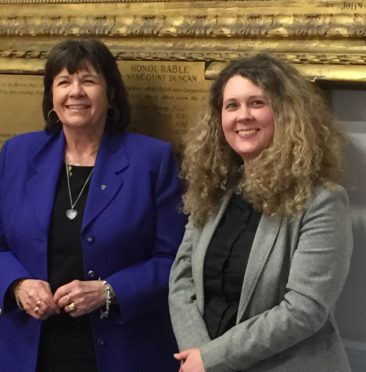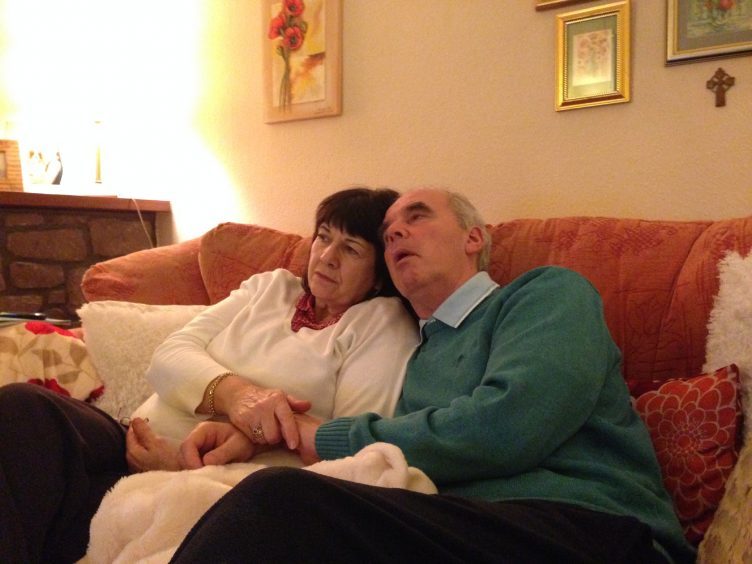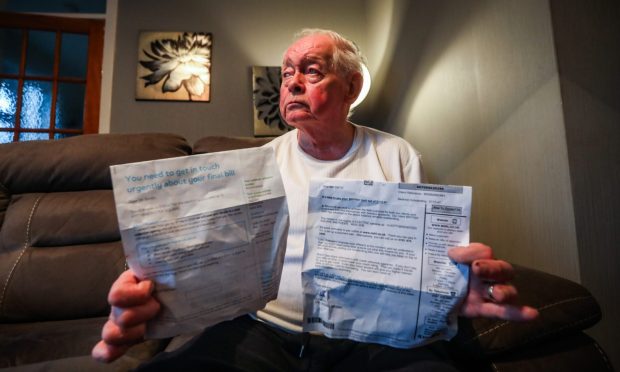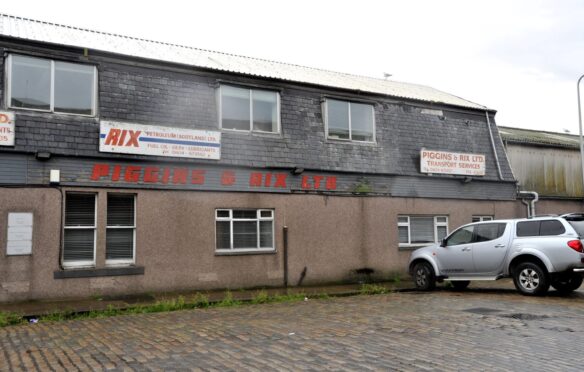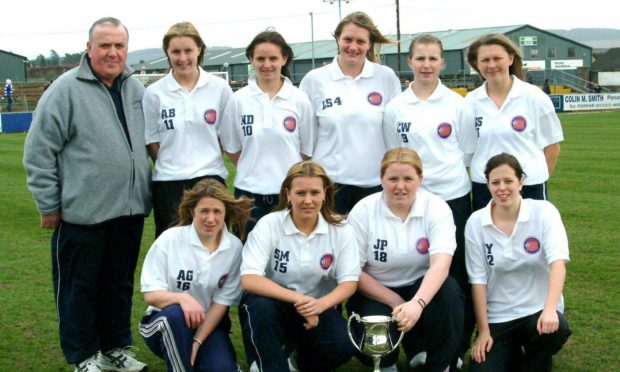Angus Council is “Frank’s Law ready” the local authority has announced.
The legislation, which ends age discrimination in personal care north of the border, will come into force next month following a lengthy campaign led by Kirriemuir’s Amanda Kopel with the backing of The Courier.
Mrs Kopel spearheaded the campaign in honour of her late husband – Dundee United legend Frank – who died in 2014 after a battle with dementia.
Yesterday, she met Angus Health and Social Care Partnership chiefs to hear how the organisation has prepared for the new legislation, known as Frank’s Law.
Amanda said: “People think this campaign started in 2013, but it really began in 1958 when I first met Frank.
“We lived across the road from one another, but could never have known at the time what an incredible impact that Frank’s condition, and the subsequent campaign would have on so many people’s lives.
Mrs Kopel, who received the British Empire Medal for her work, has been contacted by people from across Scotland who have thanked her for securing the change in law.
>> Keep up to date with the latest news with The Courier newsletter
She said it was essential that it was implemented properly.
She said: “We are almost there, and I am feeling a lot more positive, but I want to ensure that everyone who is assessed as being entitled to free personal care actually receives it.
“It is vital that no postcode lottery emerges from this.”
Angus Health and Social Care Partnership (AHSCP), which makes decisions regarding adult care services in the region, said it was “thoroughly prepared for the introduction of this new duty” but warned “a period of adjustment may follow.”
The partnership is reviewing existing cases and liaising with other involved groups, such as carers, to raise awareness and to ensure uptake by those who are now eligible.
Councillor Lois Speed, who chairs the Integrated Joint Board, said: “Like so many people across Scotland, I have a huge amount of admiration for Amanda Kopel.
“Her victory in securing free personal care for those under 65 who require it is literally life changing for so many people.
“I have been working with senior council officers to ensure the partnership is ready to implement this hard-won legislation.”
George Bowie, head of community health and care services at the partnership, said: “We welcome this change as it represents an end to eligibility for free personal care based solely on age.
“We believe that the introduction of free personal care for under 65s will ensure a broader uptake of personal care services amongst people who face a range of challenges such as disabilities, mental health problems and addiction issues”.
Footballer Frank first signed for Manchester United as a 16-year-old schoolboy and went on to play for Matt Busby alongside the likes of George Best, Denis Law and Bobby Charlton.
He signed for Dundee United in 1972 and lifted the League Cup twice during 10 years at Tannadice, scoring a famous volley against Anderlecht in the Uefa Cup in 1979.
Frank finished his playing career at Arbroath and went on to become assistant manager of the side, as well as spending a spell at Forfar as assistant manager in the early 1990s.
He was diagnosed with dementia, aged 59, and lived with the condition for six years. His family were paying around £300 a week for care at home because he did not meet the age threshold and they resolved to ensure others in a similar position were not hammered financially.
